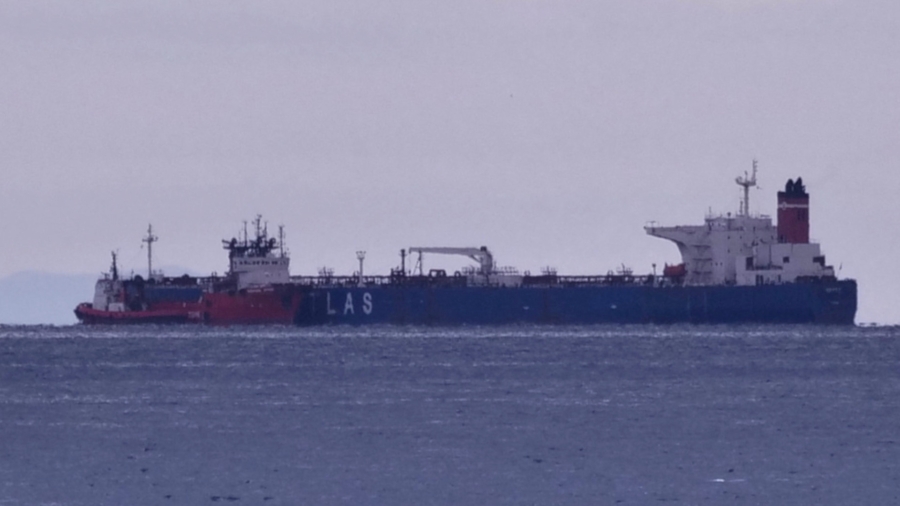Greek authorities have seized a Russian oil tanker near Karystos, a small coastal town on the island of Euboea in the Aegean Sea, according to officials. The seizure is part of the EU’s new sanctions imposed against Moscow.
“It has been seized as part of EU sanctions,” a Greek shipping ministry official said.
The new sanctions, designed to pressure the Russian economy over Moscow’s ongoing special military operation in Ukraine, have barred ports in the 27-nation bloc from accepting vessels flying the Russian flag to enter.
The 817-feet-long crude oil tanker dubbed Pegas was seized off the coast near Karystos on Tuesday, the shipping ministry said. The tanker had 19 Russian crew members on board.
The coast guard noted that the order to impound the ship only concerned the vessel itself, and not the crude oil it was transporting.
U.S. advocacy group United Against Nuclear Iran (UANI), which monitors Iran-related tanker traffic through ship and satellite tracking, said the Pegas loaded around 700,000 barrels of crude oil from Iran’s Sirri Island in August 2021.
Pegas was headed to the southern Peloponnese peninsula to offload its cargo onto another tanker but rough seas forced it to moor just off Karystos, Athens News Agency reported. It subsequently tried to unload the cargo at a Turkish port before heading to Greece, UANI said its analysis showed.
According to the vessel-tracking website Marine Traffic, Pegas was built in 2003 and has a deadweight tonnage (DWT) of 115,500. The ship is valued at $15.9 million.
In the United States, the Biden administration also considered barring Russian-flagged ships from entering ports under international sanctions over Russia’s attack on Ukraine. In March, the U.S. banned oil imports from Russia, stopping about 500,000 barrels per day of new crude shipments from entering U.S. seaports.
Following additional sanctions against Russian tankers, vessels transporting crude oil and other petroleum products are increasingly going dark—the practice of switching off the ship’s transponders—and vanishing from tracking systems.
Ever since the Russia–Ukraine war began on Feb. 24, there has been a 600 percent spike in dark activity among Russian oil tankers.
International maritime law requires commercial vessels to have the ships’ automatic identification system (AIS) switched on while at sea. The U.S. Treasury Department has classified the disabling or manipulation of AIS as a top deceptive shipping practice.
Reuters contributed to this report.

